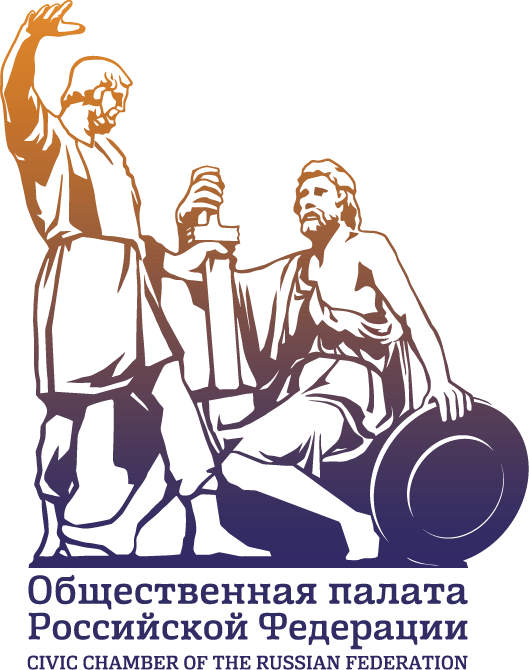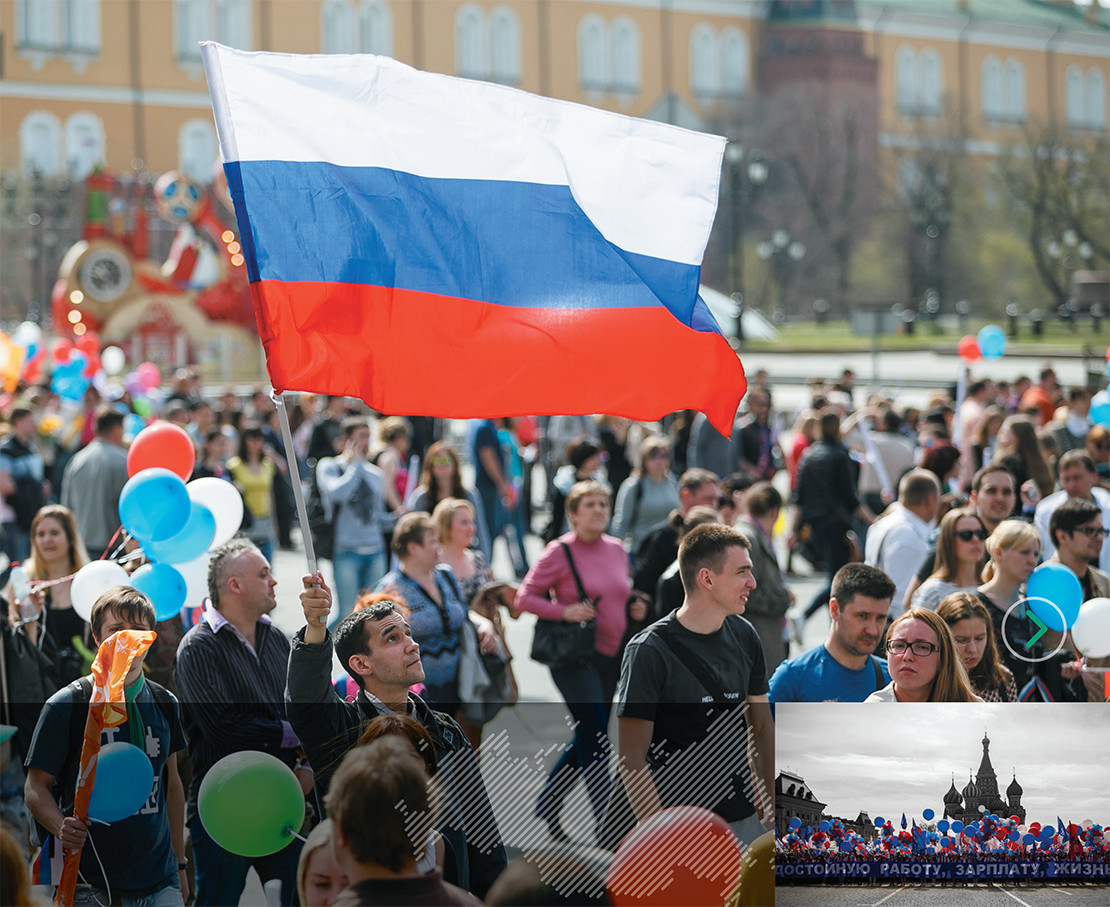
Civil Society Institutions – Institutions of Democracy
The citizens’ ability to influence developments in their country is the vital indicator for the state of civil society.
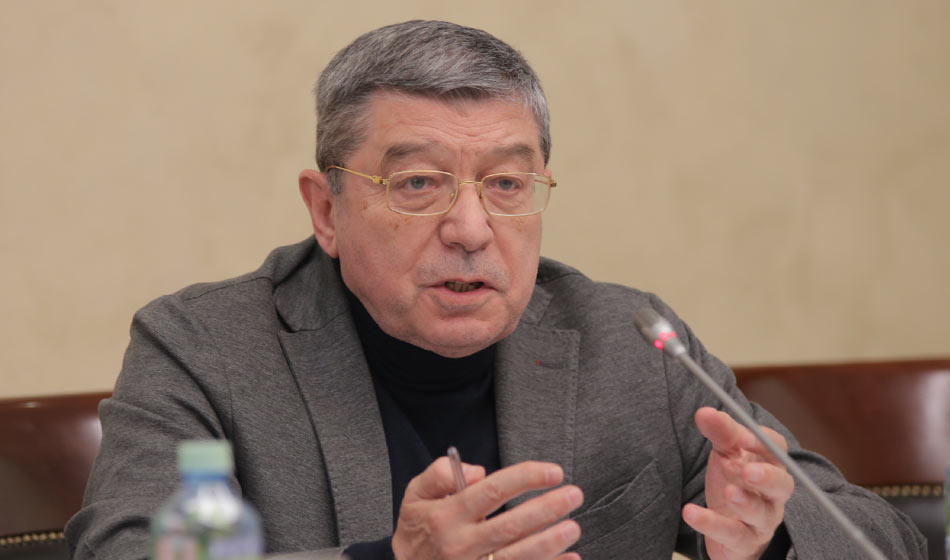
Chairman of the Commission of the Civic Chamber of the Russian Federation on Harmonisation of Inter-Ethnic and Inter-Religious Relations
A number of new issues were raised in the Draft Report of the Civic Chamber.
The first of them touches upon the role of civil society in the exercise of democracy. The question is not only and not so much about improving the electoral procedures or about public control over these procedures. The question is about the influence of civil society on the execution of a qualified and independent examination of draft laws and regulations. Also, the moral influence of the authorities of civil society matters: they delate the aspirations of the people, they make the public administration system, the democratic system more humane, more responsive to the needs and feelings of the people.
The second direction - it directly adjoins the enhancement of the relevance and role of civil society, its moral influence - is the problem of the moral and ethical foundation of the unity of Russia. When we talk about unity, we talk about values, norms and perceptions, not depending on religious, national, social belonging, ideological and political preferences. There are a lot of things that unite Russians. And the hardening of ethical foundation is integral to it. But there is no such foundation. The whole system of state and public institutions works poorly. Without such a foundation, an integrated system of public interests cannot be developed, we cannot overcome contradictions when we have different laws focused on different values and interests, and conflicts and contradictions arise which are difficult to adjust in practice thereafter.
The power of people is exercised not just through constitutional democratic institutions, but also through many other interactions between various communities and civic associations with public authorities and local governments. The weight of civil society leaders, their involvement and professionalism, as well as public expertise and oversight are equally important.
The notion of Russian national unity is now taking root in public conscience. Public conscience is about shaping values, norms, and concepts that are shared by most Russians regardless of their ethnic, religious, or social background, their ideologies or political preferences. Forty-four per cent of Russians agree that there is the Russian national unity in the society. That number is even higher among better-educated and better-off strata. * Those in disagreement with this opinion point at social division and high poverty rate as the primary reasons for the lack of such unity. It all goes to show that the problems of Russian national unity and consolidation are not about interethnic or interfaith relations, but most and foremost about the unjustifiably high wealth and financial differentiation, and insufficient opportunities for social integration and mobility.
The society demonstrates an urge to have platforms for an equal dialogue with the government.
The absence of a dialogue is a straight path towards social unrest. Lately, active groupings who are attempting to put their own interests above those of other communities and the society at large have notably grown in number. The path of direct pushback is inefficient and sometimes produces the reverse effect; some of these groupings get even more radical in their demands.
The new challenge for Russia’s civil society institutions in 2017 was to counter destructive activism and show that extreme and radical advocacy of their views undermine public order and overall stability in the country, constitutional rights of the country’s citizens and the values of the Russian society.

Dialogue Platforms
Over the recent years, the government authorities and the society in Russia got multiple platforms to sync their interests and find mutually palatable solutions.
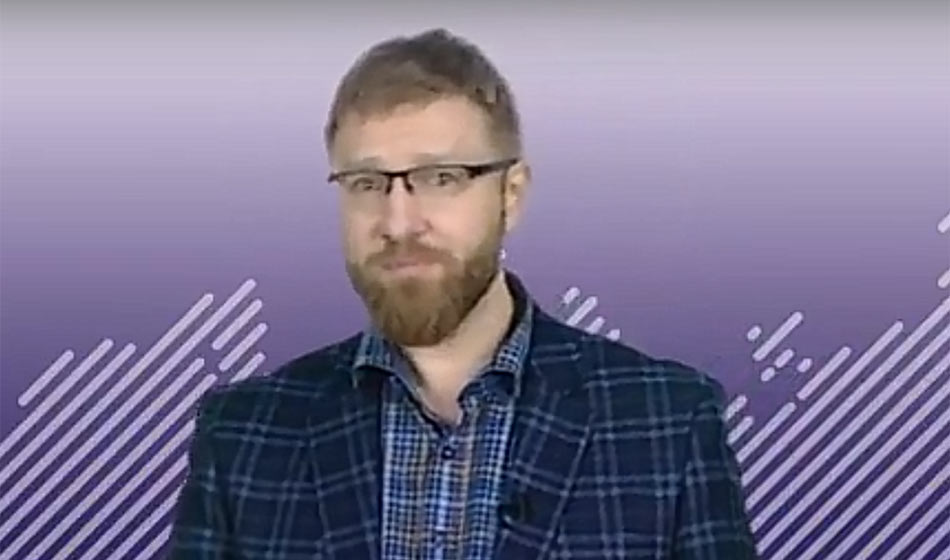
First Deputy Chairman of the Commission of the Civic Chamber of the Russian Federation on Development of Information Community, Mass Media and Mass Communications
Regional media is the closest and understandable channel of communication for the inhabitants of a particular territory, which I would even dare to describe, as one of the family. It is precisely the regional media, who are free from loudmouth chat shows and entertainment performances, can measure up to the lofty and important missions of informing, edifying and supporting socially useful initiatives which, as practice shows, are of no interest to anyone except us the regionals. In any case, the big time Federal media get interested in the life of a region, only if we have something bad happening.
The Commission, with the support of the civic chambers of the subject regions of the Russian Federations, has initiated a survey of the regional media aimed at establishing the status, problems and development trends typical of the media industry in the Russian regions. This past autumn we received up to five hundred questionnaires from 67 regions of the Russian Federation. Some of the things in them were entirely new to us which we had not covered before, other things only confirmed our perception of the state of mass media in regions. The answer to the question regarding financial sustainability for the next two years showed that 46% of all the media, who were involved in the poll, described it as "negative“ and another 42% described it as „neutral“. In other words, almost 90% of the mass media in the regions harbour no economic illusions and view their financial future with a fair amount of concern. And another important question in the poll, i.e. the question about education. As a matter of curiosity, 59% of the mass media, who took part in the poll, cited as their main problem the insufficient qualifications of journalists, and only 20% mentioned administrative pressure on the part of the authorities. Therefore, issues of media education for our colleagues are far more important than the problems with the authorities. Media do not often share with the residents the positive information emanating from non-profit organisations. As representatives of the non-profit organisations admit themselves, they are not good at "public relations", "selling themselves", promoting their success stories. Even leading regional public organisations have to be taught to tell about their successful track record and achievements. It is great that in November at the Chamber the Coordination Council was set up for regional media.
The list of tasks, issues and problems which come to us "from the grass roots", in many respects will shape our work plan at least for the next year. The issue of municipal TV being available to residents is hotly debated. For the time being the discussion revolves around the “22-nd button” in the cable TV networks for the channels in the cities and in districts with a population of more than 100 thousand residents–and there are 169 of them in our country! In the outgoing year, prices for paper have shot up in nearly one third of the Russian regions. This has to be monitored stringently. The rent charged for kiosks selling newspapers and books in a number of regions ranges from 0to 100%. The kiosks distributing the press are forced to close down because this is a loss making business, despite its social value. It would make a lot of sense to institute a uniform approach to rent rate, and ideally, to ensure that this rate is maximally low to incentivize distributors of printed matter to open up such kiosks. There are many issues involving the Federal Anti-Monopoly Authority and Roscomnadzor whose resolution would require that the Civic Chamber participate. And it is not only for the media but in relation to the media, for example, with respect to tightening up liability for slander. However, we will continue protecting those colleagues of ours on whom the authorities bring pressure to bear.
These include the Civic Chamber of the Russian Federation, Civic Chambers in Russian regions, the Russian Popular Front, the public councils under federal and regional executive branches, as well as ombudsmen institutions- for Human Rights, Children and Business respectively. There has emerged a network of federal youth forums, such as the Territory of Meanings, Tavrida, and others. In the 2010s, a number of trustworthy and reputable platforms started, including Russia’s Social Forum, the Forum of Social Innovations in the Regions and others. ‘Community’ forums held by the Civic Chamber of the Russian Federation arouse great interest within the civil society.


The ‘Community’ is an open forum for the society, business, and the government. The year 2017 has shown that our country abounds in people who really care, who really make a difference and who choose action. That is why the Civic Chamber of the Russian Federation has voted to change the name from “the forum of active citizens” to the “forum of those who act”. The country does not need an activity for the activity’s sake. It needs positive action. And the country has the right people for that.


Mass media have traditionally been the most critical channel for the society - state interaction. Over the past years, the infosphere has undergone fundamental change with the arrival of online news services which do not even need a dedicated website, e.g. Telegram channels, newsletters, etc. Conventional mass media regulation does not work for such platforms because they are not registered mass media. Meanwhile, audiences of regional media continuously shrink, and journalism as a profession is facing a credibility crisis.
This underlies the financial decline of regional mass media. According to the survey held by the Civic Chamber of the Russian Federation, almost 90% of all regional mass media are alarmed about their future financial standing. The professionalism of journalists is another topical issue. Curiously enough, when asked about the main hurdle in their work, 59% of the mass media survey respondents pointed at the insufficient qualification of journalists, while only 20% made a reference to administrative pressure from the authorities * .


Regional Civic Chambers
Regional civic chambers have become the core platform for the dialogue between the state and the society in Russian regions. Civic chambers are involved in expert assessment of bills, public control function and staffing of public councils.
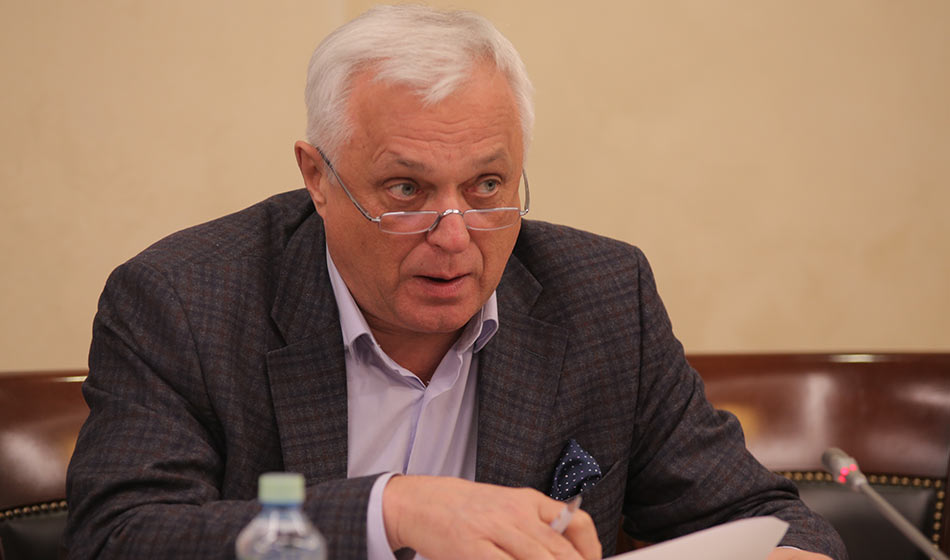
Deputy Secretary of the Civic Chamber of the Russian Federation
Working with the regions is one of the top priorities in the activities of the Civic Chamber of the Russian Federation. The regional chambers are now becoming forums for dialogue between the authorities and the society. Thus, for instance, the civic chambers are participating in the expert evaluation of law bills, in the exercise of public control and in establishing public councils. In some regions, the civic chambers exercise the right of legislative initiative granted to them.
The role played by the Council of civic chambers is now being enhanced in the process of inter-regional interaction. Russia’s Council of Civic Chambers is becoming the centre for exchange of experience and search of effective solutions. With a view to developing public debate, shortening the distance between the activists and the authorities, for the purpose of enhancing the role of the regional Civic Chamber, the Federal Project #WHATISNOTRIGHT has kicked off and is in the process of being implemented in a number of subject regions. An important component of the project is the setting-up of an open discussion club attached to the regional civic chamber. This format allows work both with organised groups of citizens united by common ideas, interests, preferences and with each citizen activist who wishes to take part in implementing their ideas and projects aimed at improving the quality of life which significantly raises the authority and importance commanded by the chamber in the region. To strike the proper balance, to take into consideration the interests of the whole society and each citizen is one of the most important challenges of the day as well as the pivotal task of the regional civic chambers and the Civic Chamber of the Russian Federation.

In some regions, civic chambers exercise their right to put forward legislative initiatives.
However, practice shows that frequently the results delivered by civic chambers are dependent on the position taken by region heads and their attitude to the civic chamber.
Thus in regions where the governor is eager to hear vox populi, chambers play a notable role in advocacy of various population groups. Tatarstan, Khakassia, Karachay-Cherkessia, Krasnodar and Stavropol regions, Belgorod, Kirov, Smolensk, Tula and Ulyanovsk Regions, Khanty-Mansi (Yugra) Autonomous District are frequently mentioned by the ‘Community’ experts as showcases for civic chambers acting as vehicles for a continuous dialogue between civil society and the authorities.
Exciting inter-sectoral partnerships initiatives include Yakutia, where NPOs are stepping-up in rural areas. In Yaroslavl Region, NPO support proposals from the local government sometimes outnumber requests for such support from the NPOs themselves. The Civic Chamber of Kaliningrad Region actively engages in public monitoring in the utilities sector, bringing to the public light the community-relevant pressing issues around the current condition and development prospects of this crucial area. The Civic Chamber of Sverdlovsk Region has successfully led the consolidation of the regional volunteer organisations.
An interesting initiative was advanced by the Zabaykalsky Territory where, shortly before the regional governor delivers his annual address, the civic chamber prepares the so-called “Citizens’ Address” based on the proposals from the local community.
However, in many regions, civic chambers lack an agenda of their own in dialogue with the authorities, nor properly support social conflict situations.
According to the survey by the Civic Chamber of the Russian Federation as part of the ‘Community’ forums, less than half of the forum participants have ever attended any of the events arranged by regional civic chambers. Yet an overwhelming majority of those who have participated rate their participation experience as positive * .
In order to close up these gaps and ensure that local problems are handled through a joint effort, the Civic Chamber of the Russian Federation has launched the #WHATISNOTRIGHT project in Russian regions.

The project has already started in four regions, namely Ryazan, Novgorod, Yaroslavl Regions, and the Republic of Karelia. As part of the project, regional civic chambers now run open panels with the participation of regional governors and a wide range of activists, including the ones who take a critical view of regional governments. While the round-table discussions go as they should, passers-by are snap-polled near the #WHATISNOTRIGHT sign installed outside the civic chamber. In a few hours, the snap poll returns hundreds of responses, and all of them are forwarded to governors and city mayors, providing a valid feedback channel.
Discussion clubs open under the auspices of regional civic chambers. The clubs open their doors to all civic activists of the region, journalists, public officials, and businessmen. The ultimate purpose of these clubs is to set up a sustainable, direct, and efficient communication channel for local authorities and all citizens, regardless of their civil position, political views, social standing. This arrangement does not infringe the position of the regional civic chamber but rather strengthens it. The results of such clubs are already gaining visibility: for example, in Ryazan Region, following a heated discussion of the long-abandoned children’s summer camp called “Skazka” (Fairy Tale), local entrepreneurs donated enough to start the camp’s reconstruction and repair.
Experience shows that such clubs now are one of the most relevant and sought after activities for the local civic chambers. This format is suitable both for citizens grouping around common ideas, interests and devotions and for each and every individual civic activist wishing to participate in promoting and implementing his/her ideas and projects to improve the quality of life.
Today the overarching objective and one of the key challenges for the regional civic chambers is to find the right balance between the interests of the community at large and each individual citizen. Involvement of the Civic Chamber of the Russian Federation in staffing regional civic chambers could become one of the ways to strengthen their autonomy and independence in their regions, for instance, through a statutory quota for appointees to each regional civic chamber from the Civic Chamber of the Russian Federation, or the introduction of a secret alternative voting procedure to elect regional chamber chairpersons. These proposals deserve a thorough discussion, and so does the overall approach to improving efficiency and autonomy of regional civic chambers.

Moreover, the Civic Chamber of the Russian Federation has plans to more actively engage the Council of the Civic Chamber of the Russian Federation in coordination with regional civic chambers (the Council of civic chambers of Russia). Its extended meeting was held on 2 November 2017 as part of the ‘Community’ end-of-year forum in Moscow.
Federal Law of 23 June 2016 No. 183-FZ “On General Organisational and Activity Principles of Civic Chambers in Regions of the Russian Federation”, which has been in effect since 2017, has established a new procedure of formation for regional civic chambers and allowed them greater financial and organisational levers to implement public initiatives. Experience shows that such levers are more accessible to the civic chambers enjoying permanent funding from regional budgets. Therefore, the Law must provide a clearer statement on the budgets of regional civic chambers.Municipal civic chambers (public councils) are not to be overlooked either. Regional laws on civic chambers or the Federal Law on regional chambers have no guidelines about the set-up of municipal civic chambers (public councils). Nevertheless, such chambers (councils) have already been formed in 52 regions, and in 16 regions such chambers (councils) operate in all municipalities * .

It is too early to assess the performance of these new institutions of civic dialogue, yet it is obvious that regional and municipal authorities will have to make sure that these institutions develop. But it does not happen all that smoothly. For example, in Yalta, there are two municipal civic chambers, one supported by the head of the municipality, and the other by the head of local administration, and they have trouble hearing each other. At the same time, in some regions, these institutions come up with compelling initiatives. The Komi Republic initiated a competition among civic chambers in municipalities for best-organised activities, while citizens initiated formation of public councils at the level of settlements * . In some regions, like Moscow Region, for example, municipal chambers have engaged the active local community thus improving the overall quality of civic engagement in local affairs. In some regions, it is already a tradition to hold joint meetings of the regional civic chamber and municipal public chambers (councils). In Vologda Region, the regional civic chamber has issued an almanac of best social practices from municipal public councils and established the award for best public councils “Vologda Region Civil Society Leaders” * .
The root cause of problems faced by executive authorities’ public councils, civic chambers in Russia’s regions and municipalities is one, that is, the absence of direct obligations of authorities vis-à-vis such intermediary institutions. Resolutions of public councils, chambers, and commissions are perceived as a recommendation only, there is no adequate mechanism for authorities to effectively respond to the requests from public organisations and initiative groups coming in the form of resolutions passed during their meetings.
Public Councils
Public councils of federal executive authorities are to become one of the key channels for civil society and executive authorities to communicate with each other.
Since 2016, these councils are formed on a competitive basis with the Civic Chamber of the Russian Federation and the Government Expert Council in charge of distributing quotas. Relevant non-public organisations have been given the right to nominate their candidates for public councils.
The task of these civil representation institutions is to bring to the attention of government officials the most pressing issues which call for immediate response. They are to not only discuss or approve initiatives proposed by ministries or relevant authorities, as used to be the case until quite recently, they are to urge such ministries and authorities to focus on the most critical bottlenecks in their relevant areas.
So far, in practice, only but a few councils have made this shift and help authorities to deal with the issues that weigh on the minds of the society. It is not a coincidence that in June 2017 President Putin spoke negatively of the earlier approach towards formation of public chambers by ministries and authorities by calling it “perfunctory, ‘Brownian’, and unnecessary” and voiced his hope that “…this will turn into a meaningful effort aimed at improving performance of ministries and government agencies” * .
Today, there is only one formal criterion to assess the efficiency of public councils, that is, the number of actual meetings held and the number of attending participants. The Civic Chamber of the Russian Federation has plans to change this approach. In order to do this, the Chamber has initiated the creation of an IT platform for regular elections to public councils of federal executive authorities. The Civic Chamber of the Russian Federation seeks to push public councils towards handling issues of pressing urgency that occupy people’s minds. The Regulations for public councils assessment were prepared by the Civic Chamber with the active engagement of the public councils.
As far as public councils of regional executive authorities, there are still no general rules and approaches. In 2016, forty-five regions had in place some legislative acts and regulations determining the way public councils are to be formed, as well as to the key principles for their operation. Yet, the process of forming public councils in many cases remains non-transparent, and opinion leaders of local communities have an even smaller chance to get on such councils than into civic chambers. As a rule, executive authorities perceive such councils as ‘yet another tick-off for the officials’ who seem to have enough on their plates anyway, and sometimes regional leadership mistake public initiatives for a negative assessment of their own competencies and qualifications. The lack of the dialogue culture both on the part of authorities, and on the part of civic activists curtails more efficient interaction.
However, sometimes public councils in Russian regions whose members include members of the regional civic chambers become effective dialogue platforms. In a number of regions, public councils are formed in consultation between local executive authorities and civic chambers, while in others the composition of all public councils of executive authorities has been agreed with the civic chamber. It is advisable to make it legally binding for civic chambers to engage in the formation of public councils of territorial authorities. * It is also advisable to establish a competitive process of enrolment on public councils, as well as key requirements to candidates and candidate nomination procedure.
Local Governments
The institution of local self-government is hybrid in nature. It is a public authority, on the one hand, while it is a civil society institution on the other.
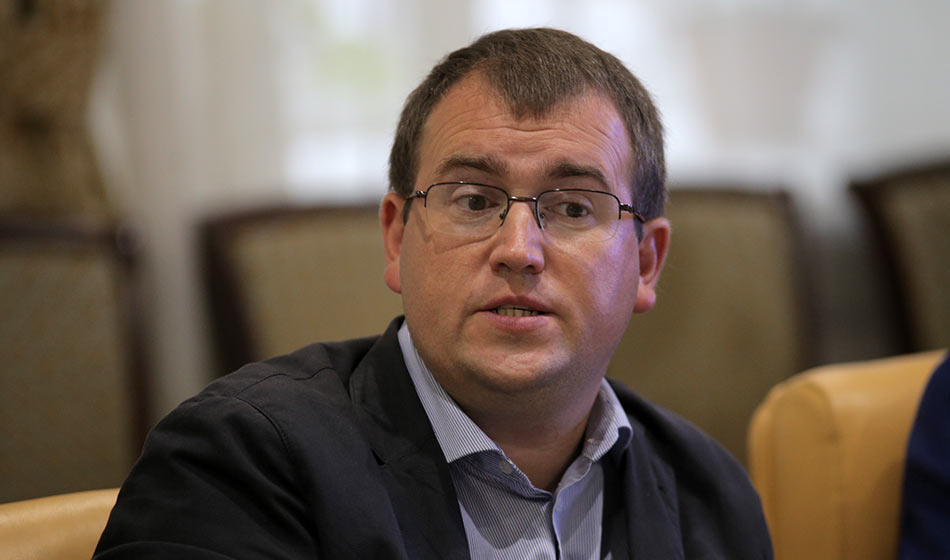
Chairman of the Commission of the Civic Chamber of the Russian Federation on Territorial Development and Local Self-Governance
The Report on development of civic society, in 2017, gives a great deal of consideration to the grass root level of citizens' activism, their self-organisation, local self-governance. As a matter of fact, these are the processes which are particularly important as development of civic society depends on them and the manner in which the country is living is decided at a specific local level. That is why it is very important that local self-governance should develop. However, in 2017, we are witness to different processes. On the one hand, many small towns are depopulated; in rural areas, people are moving to large cities and conglomerates. This causes regional authorities to merge municipalities which deprives people of some of the infrastructural facilities. We know that merger of municipalities often results in closure of schools, post offices, branches of the savings bank. And still in specific communities people get on with their lives. That is why it is crucial that these processes be taken under public control and that certain criteria be selected for municipalities to be merged. However, there are also processes which inspire hope. They are especially noticeable in 2017. And the government has turned its face to local communities; a large scale programme is being implemented for shaping an urban environment based on discussion with citizens of such things as where a park should be located, where a public garden should be set up and in what shape and form a specific social space should be organized. 2017 has seen territorial public self-governance developing fast. It implements specific projects for providing aid to specific people, decorating and beautifying yards and streets; it helps people survive when they are in grief or trouble, for example, in the case of a flood. And these are positive practices – establishing neighbours’ centres.
However, over the past decades of bureaucratization of local governments, its self-governance nature has largely been lost, while a significant part of the municipal managerial resources are handed over to the regional level. These factors deplete people’s interest and trust in local governance, they replicate and aggravate the low public engagement in municipal governance.
Laws provide for various forms of public engagement in the decision making process at local levels, including referendums, public hearings, law-making, ‘zero’ stage readings, public monitoring, expert evaluation and regulatory impact assessment of legislative acts. Yet, most of these instruments are idle today. Very few want to spend their time on attending these events, citizens go active only when they know that they do matter. So far, dealing with a specific issue at the federal level, by getting through to the regional governor or the President over the “direct line” seems easier than participating in municipal meetings.


In 2017, the pace of agglomeration of municipal formations went up. In 2016, the country’s municipal map showed 72 municipalities fewer than the year before, while during the first five months of 2017, 193 municipalities, primarily the rural ones, disappeared * . The key reason is depopulation of villages and smaller rural settlements because of the gradual disintegration of the farmers class. A serious risk in this respect is posed by Federal Law of 3 April 2017 No. 62-FZ “On Changes to General Principles of Local Governance Organisation in the Russian Federation”. This law introduces fundamental changes to local governance principles allowing all rural communities within a municipality to merge into one urban district resulting in a subsequent abolishment of individual local governments. Since the law does not set out any specific criteria for such territorial transformations, there are grounded fears that practically all kinds of municipal units may be restructured into urban districts, including predominantly rural ones, with low urbanization and poor infrastructure. If they lose the status of administrative centres, many rural settlements may face closing of major infrastructure facilities, like post offices, banks, schools, or outpatient clinics.
The process of municipalities consolidation, uneven population densities and concentration of population in major cities and agglomerations do not only limit access to local governments for the local population, they lead to the estrangement of many citizens from dealing with local problems. In 2017, many political parties faced a real problem when looking for candidates for rural councils, because people do not want to put themselves up as candidates for they feel that they cannot really make a difference * .
At the backdrop of the declining interest towards local governments and their activities, many local problems are increasingly handled in informal ways, while various city and rural communities evolve.
Over the past few years,
territorial self-governments (TSGs) in rural areas have gained momentum.
Rural TSGs emerge in settlements where, for a variety of reasons, major manufacturing and production facilities have either disintegrated into smaller manufacturers or have closed, farming has not stepped in, the opportunities for non-farming haven not been tapped. By chipping in own funds and labour the surviving residents of such ‘abandoned villages’ safeguard and repair the remaining infrastructure or create new improvements or places of public attraction

Chair of the Commission of the Civic Chamber of the Russian Federation on the Agricultural and Industrial Complex and Rural Territories
In recent times, we have been witness to the self-governing nature of state power at the local level being lost to a great extent with the significant portion of the municipalities' management resource being transferred to the regional level. All this contributes to reducing people's interest and confidence in local self-governance, reproduces and aggravates a low level of citizens' involvement in municipal governance. The process of municipalities consolidation, lack of uniformity of population distribution and concentration of population in major cities and conglomerates does not only exacerbate the problem of the population's access to local self-governance but leads to estrangement of a considerable number of citizens from participation in solving local problems. Against the background of loss of interest in the operation of local self governing bodies, there has been growing a non-formal activism in solving local problems, various urban and rural communities have been taking shape.
During the last few years, in the rural territories, a movement of rural territorial self-governing bodies has been gaining momentum. A prominent event in 2017 has been the kick-off of a priority project "Creating a Comfortable Urban Environment ", within the framework of which mechanisms of citizens' direct participation in determining public spaces for beautification at the expense of Federal funds are being debugged. During the first year of the project implementation, the Federal budget allocated RUB 25 billion, whereas the total amount of funds including co-financing from the regional budgets made up RUB 42 billion. The central goal of the project is to let people get a sense of responsibility for their property, to help them understand that land improvement is their project which they have conceived of and implemented themselves while the authorities have just helped them to bring this off. 2017 has witnessed progress having been made compared to at a stand still status of the concept for revival of the village headmen’s' institute.
The Civic Chamber of the Russian Federation wrote of the need to revive this institute back in 2015 and 2016. In 2017, President of Russia Vladimir V. Putin tasked the Government of the Russian Federation with defining the legal status of a village headmen and the guarantees of the monitor's activities. Russian and international experience in municipal development shows the following: the more the citizens are involved in the decision making process at the local level, the more they are satisfied with the quality of dialogue in the local community, the more productive and constructive becomes the citizens' interaction with public authorities of the regional and Federal level.
The “Gorodishche is my Home” TSG (village of Gorodishche in Cherepovets District of Vologda Region) was set up in 2013. Having thus consolidated their efforts, local residents can boast quite a success now. They built a children’s playground and held the Green Rock ecology festival, coated the road to the village with asphalt and installed a cellular tower. Other endeavours include restoring the Holy Trinity church on the shore of the Rybinsk Reservoir.
People pay for most of the projects from their own pocket. Local administration helps as much as it can. The Gorodishche TSG is currently one of the best TSGs in the region.
According to TSG activists, the results exceeded their expectations. As people resolve common problems, they both improve life in their home village and become more responsible.
In 2017, the “Gorodishche is my Home” TSG became a finalist of the “My Project for My Country!” national competition * .
Today, it is important that this energy be channelled into local governments to revive civil engagement in their activities.
An important event in 2017 was the launch of “Creating a Comfortable Urban Environment”, a priority project that helps setup and fine-tune the process of engaging citizens in identifying which public areas in their cities should get federal government funding. During the first year of the project, the federal budget allocated RUB 25 billion, while the overall financing combined with the co-funding from regional budgets totalled RUB 42 billion. The topmost goal of this project is to make people feel responsible for what they own and help them realise that urban renewal is their project that they have initiated and implemented, and that all the authorities do is render a little help.
The Russian government has given regions freedom to choose their own ways to engage their population in projects for creating a comfortable urban environment. As part of this activity, many regions have generated non-trivial solutions. For example, Rostov Region developed an information portal with a respective mobile app. In Kirov Region, residents were offered a wide range of ways to participate, from simple voting to attendance of seminars and children activities dedicated to the project. In Saratov Region, in addition to local residents, the project titled “Improvement of Areas Adjacent to Apartment Buildings and of Public Areas” engaged members of the local business community, civic activists, experts, architecture students, and the local youth community.
Large-scale area improvement can bring around social impact only if local communities are involved in the decision making as to what public areas, parks, embankments, and streets deserve improvement and what changes in the urban environment people, not the authorities, need.
Initiative-based budgeting, i.e. citizen engagement through shared civil participation ideology, has progressed a lot over the past years. The state is becoming more active in engaging citizens in the selection of budget-funded projects and in their follow-up checks. In 2016 alone the regional subsidies allocated to initiative-based budgeting programmes amounted to RUB 5.1 billion (vs. RUB 1.4 billion in 2015). The overall value of initiative-driven budgeting projects in 2015 amounted to RUB 2.4 billion vs. RUB 7 billion in 2016. The number of projects increased from 2,657 to 8,732 (3.3x). Forty-seven regions of Russia decided to launch initiative-based budgeting programmes. It is increasingly frequently the case that initiative-based projects are financed not only from regional budgets but from municipal budgets as well. In 2015, such projects were implemented in the following cities: Penza, Cherepovets (Vologda Region), Sosnovy Bor (Leningrad Region), Yakutsk (Republic of Sakha), to be later joined by projects in Novouralsk (Sverdlovsk Region), municipal areas in Ulyanovsk Region, Borovsk (Kaluga Region), Magnitogorsk (Chelyabinsk Region), and Zheleznogorsk (Krasnoyarsk Territory).

In 2017, the institution of village headmen was finally brought back to life. In 2015 and 2016, the Civic Chamber of the Russian Federation referred to the need to have this institution revived * . In 2017, President Putin mandated the Russian Federation government to determine the legal status of the village headman and the guarantees inherent to the village headman’s activities * . At the same time, some experts note that the institution of village headmen should not completely replace existing local governments in rural areas, for they strongly doubt it that these headmen are capable of handling local matters professionally enough * .
Nevertheless, people do wish to see a stronger municipal government institution.
Today, 65% of Russians support the idea of referendums to elect city mayors, heads of municipalities, and rural settlements. Most respondents questioned by sociologists generally support the idea of regional referendums alongside presidential election and about the passing of regional laws to provide for electivity of local governments through referendums, and they are ready to support such laws * .
Russian and international experience around the development of municipalities shows that the more citizens are involved in the decision-making process at local levels, the more they are satisfied with the quality of the dialogue throughout the local society, as well as the more productive and constructive is the coordination between citizens and regional and federal public authorities.

